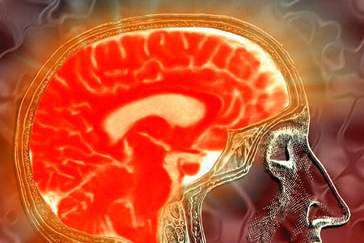
Traumatic brain injuries (TBIs) are complex injuries with many symptoms. This often makes them difficult to identify. A TBI can affect all aspects of an individual's life. Unlike a broken limb or other injury below the neck, a TBI can affect one's personality and mental abilities for life.
TBIs can be put in two categories, mild or severe. If loss of consciousness or confusion at the time of injury is shorter than 30 minutes, the injury may be classified as mild. Someone who suffers a mild TBI may experience continuing symptoms like headaches, difficulty thinking, memory problems, and mood swings.
80,000 People A Year
Indicators of a severe TBI are loss of consciousness longer than 30 minutes and memory loss after the injury. Effects range from impaired cognitive function to a comatose state. Survivors may have limited speech or use of limbs.
About 80,000 people a year suffer a TBI in the United States. The brain physically recovers from a TBI one to two years after the injury. But it may not heal in the same way. People who suffer a severe TBI often lose their independence and are overlooked by the medical community once the brain has physically healed.
Targeted electrical impulses, called deep brain stimulation (DBS), to the brain have the potential to significantly improve cognitive function for those who suffer from traumatic brain injury (TBI).
What is a Deep Brain Stimulator?
A Deep Brain Stimulator operates similarly to a pacemaker. Its three parts are the lead (electrode), extension, and the pulse generator.
The lead is surgically placed under the damaged area of the brain. The extension is implanted under the skin from the head to the pulse generator, connecting the electrode to its power source, the pulse generator. The pulse generator is placed in the collarbone or abdomen area, creating electrical impulses that are sent up through the extension, to the lead, disrupting regular brain function.
Deep Brain Stimulation Research
One of the key traits of a traumatic brain injury is a loss of self-control because of damage to the frontal lobes. Ohio State Researchers, Dr. Ali Rezai and Professor John Corrigan spearheaded a study on the effects of DPS on people who had been living with a traumatic brain injury for up to 21 years.
Within two years, three of four patients studied experienced significant improvement in emotional function and daily function.
Other Uses
DBS is FDA-approved in the United States for a variety of brain disorders that affect movement, including Parkinson's disease, essential tremor and dystonia, epilepsy, and limited use for obsessive compulsive disorder.
Treatment for other brain disorders like general anxiety disorder, depression, and post traumatic stress disorder are being evaluated.
There is even evidence that DPS can improve regular memory. In a Penn State study, epilepsy patients, who were already assigned to receive deep brain stimulators, took a word-recall memory test. The average score improved by 15 percent with DPS.
Memory treatment would initially be reserved for veterans and service members once it is approved by the FDA.
Sources And Further Reading:
- Acey, Madeleine. "Brain Implants: Restoring Memory with a Microchip." CNN. May 08, 2013. Accessed June 21, 2018.
- "Brain Implants Help Scientists Speak the Brain's Language." Columbia Neurosurgery. July 20, 2017. Accessed June 21, 2018.
- Cronk, Terry Moon. "DARPA Developing Implants to Help With TBI Memory Loss." U.S. DEPARTMENT OF DEFENSE. July 15, 2014. Accessed June 21, 2018.
- Fuertes, Rechelle Ann. "Memory Chip Implant Created to Help Human Brain Remember." Edgy Labs. April 24, 2018. Accessed June 21, 2018.
- Harvard Health Publishing. "How Memory and Thinking Ability Change with Age - Harvard Health." Harvard Health Blog. Accessed June 21, 2018.
- Powell, Corey S. "Memory-boosting Brain Implants Are in the Works. Would You Get One?" NBCNews.com. April 23, 2018. Accessed June 21, 2018.
- Rauf, Don. "Can Brain 'Pacemaker' Improve Lives of Head Trauma Patients?" Consumer HealthDay. September 23, 2016. Accessed June 21, 2018.
- "What Are the Effects of TBI?" TraumaticBrainInjury.com. Accessed June 26, 2018.
- Xiong, Ye, Asim Mahmood, and Michael Chopp. Advances in Pediatrics. March 2009. Accessed June 21, 2018.









